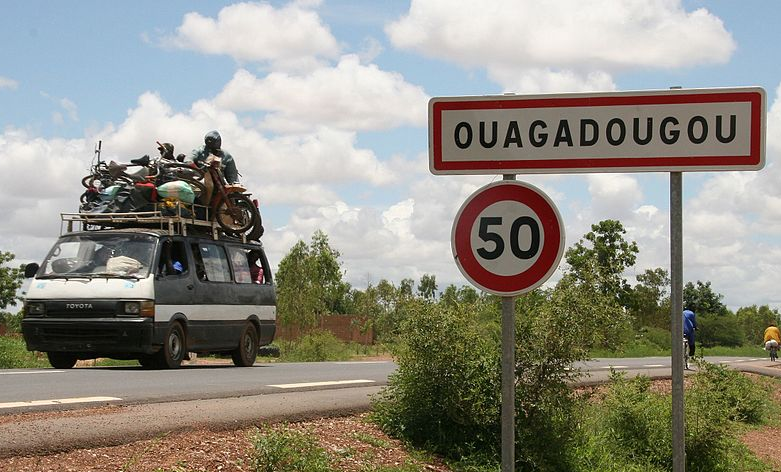
The beat
Corruption at home and abroad
The Australian Border Force was shaken last week by the revelation that two of its officers were involved in an organised crime syndicate that was allegedly planning to smuggle drugs and tobacco into Australia. ASPI’s John Coyne argues that the incident undermines not only public trust in law enforcement but also Australia’s border security.
Further from home, Vietnam, runner-up for the dubious prize of ‘most corrupt country in Asia’, is attempting another crackdown on corruption: a Politburo directive advises top officials to avoid corruption and nepotism and to commit to a transparent life.
Fighting child abuse
Thanks to intelligence-sharing since 2015, Southeast Asia has become safer for children. The UK’s National Crime Agency has been cooperating with regional immigration officials, enabling the destination country to decide whether to allow or refuse entry to registered child sex offenders from the UK. More countries are due to sign up to the program, which will hopefully limit access for known sex offenders. Although many sex offenders in the UK are permitted to travel, their itineraries are subject to multilateral assessment before they can leave Britain. Recent Australian policy changes appear to be more severe, denying offenders a passport at all, and the US puts alerting stamps into their passports. While preventive measures are increasingly successful, many incidents of abuse still occur: Europol is currently looking for help to identify a hotel room in a child abuse case.
Disarmed FARC
The 15th of August marked the final (official) day of disarming of Colombia’s FARC rebels. Despite that, police are still expected to remain in ‘temporary demobilisation zones’ for the next three years. The success of the next stage, ‘political, social and economic reincorporation’, will depend on whether the government provides the former rebels with enough opportunities for constructive participation.
CT scan
Raqqa surrounded
The US-backed Syrian Democratic Forces (SDF) are making steady progress in their efforts to retake Raqqa. The SDF has faced ‘stiffer resistance’ than anticipated, and leaders believe that the offensive could yet take months to complete. Elements of the SDF, advancing on the city from the east and the west, have met in the middle and ‘now control 55 percent of the city’. That move ‘deprives IS from access to the Euphrates River’ and has left the remaining IS fighters surrounded.
Burkina Faso restaurant attack
An attack on a restaurant in Burkina Faso’s capital, Ouagadougou, left 18 people dead and eight wounded. Communications Minister Remis Dandjinou dubbed the incident a terrorist attack. No group has yet claimed responsibility. In response to the incident, Burkina Faso and France have agreed to ‘accelerate the deployment of a multinational military force’ to the region to fight militant Islamists.
Marawi insurgents down but not out
Reports suggest that fewer than 40 ISIS-affiliated fighters remain in the besieged Philippine city of Marawi. But the small group still poses a serious threat. The battle over the city has resulted in the deaths of 128 soldiers, 552 insurgents and 45 civilians.
Checkpoint
Celebrations dampened by unrest in Kashmir
This week marks the platinum jubilee of India’s independence from British rule. The anniversary simultaneously marks 70 years since partition and the birth of Pakistan. An interesting map detailing the border changes in the region can be viewed here.
Last Sunday, eight people were killed in the disputed territory of Kashmir, which borders both Pakistan and India, after parliamentary forces responded to rebels who stormed polling booths. Kashmir is claimed by both its neighbours but has continually fought for independence.
Traffickers force 300 migrants into the sea
Human traffickers last week forced 300 migrants—from Ethiopia and Somalia—to jump off their boats into the sea near Yemen in order to avoid potential penalties from coastal authorities. More than 50 people drowned and many others are still unaccounted for. The International Organization for Migration has provided emergency relief.
Trade route between Saudi Arabia and Iraq restored
A discussion on Monday between Saudi and Iraqi officials resulted in the reopening of the Arar border crossing. An important trade avenue between the two nations, the crossing was closed in 1990 after Iraqi forces under dictator Saddam Hussein invaded Kuwait. The relationship between the two countries has been improving since the reopening of the Saudi Embassy in Iraq two years ago.
First responder
Disaster resilient microfinancing
This week IRIN described a new approach to microfinancing taken by World Vision’s Vision Fund International. The approach aims to boost disaster resilience by increasing the availability of finance that fits the seasonal economics of farming. It does so via sophisticated climate modelling, longer term loans, and rapid debt funding (PDF). Microfinancing remains a highly controversial topic, as there’s substantial evidence that microfinancing programs don’t reduce net poverty, assist in eroding workers’ rights and usually make poverty worse.
Gene drive potential
Discussion about ‘gene drives’ continued with an extensive article in The Conversation this week. Gene drives, aided by CRISPR gene-editing technology, may allow conservationists to wipe out pest species and protect environments. The technology may not live up to its hype, however, as mosquitos and rats have developed a resistance to gene editing in limited studies.